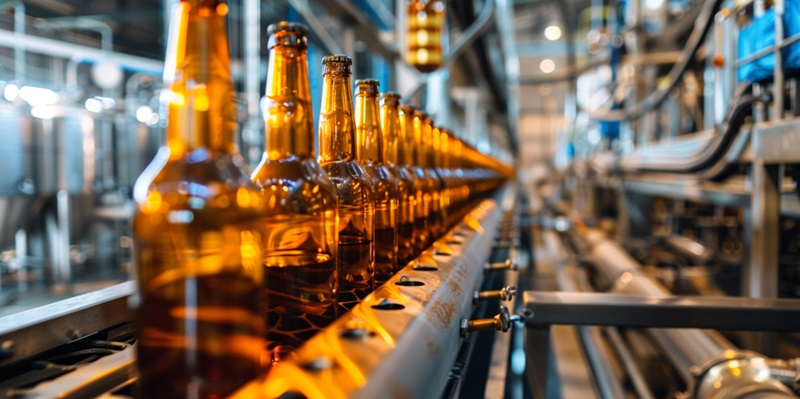The advent of state-of-the-art systems in the beverage manufacturing industry has marked an era of transformation, especially in the detection of foreign substances in beverages. Central to this evolution is the integration of advanced Artificial Intelligence (AI) technology into the quality control processes. This innovative AI-powered system sets a new benchmark by automatically identifying contaminants in beverages, thereby significantly enhancing the precision and efficiency of the inspection procedures. This leap forward not only promises improved productivity and cost savings but also reinforces the industry’s commitment to product safety and quality standards.
The Breakthrough in Detecting Contaminants
The incorporation of AI technology into the beverage production lines represents a notable advance over traditional methods. The AI-powered system boasts the remarkable capability to detect particles as small as 1mm with unparalleled accuracy. Unlike manual inspections where workers had to visually identify contaminants in heavy bottles, this system automates the process, substantially reducing the labor-intensive nature of inspections. Additionally, it enhances productivity, enabling the inspection of up to 1,000 one-liter bottles or 1,500 720ml bottles per hour. This efficiency is a stark contrast to traditional methods and signifies a giant step forward in maintaining high-quality standards in beverage manufacturing.
What makes this AI system stand out is not just its precision but also its impact on the overall productivity of the production line. By automating the detection process, it alleviates the burden on workers, who can now focus on other critical aspects of production and maintenance. This, in turn, contributes to a more streamlined and efficient production line, with fewer bottlenecks and delays. The ability to detect even the smallest contaminants ensures that the final product reaching the consumers is of the highest quality, thereby fostering trust and brand loyalty. Moreover, the system’s speed and accuracy in inspecting large volumes of bottles underscore its potential to revolutionize quality control in the beverage industry.
The Trend Towards Selective Automation
The move towards selective automation in beverage manufacturing is not merely about adopting new technology; it’s about optimizing efficiency and ensuring the highest standards of product safety. AI-driven quality control systems are at the forefront of this transition. By integrating such systems, manufacturers can maintain stringent quality controls without compromising on speed or efficiency. This shift is not limited to beverages alone but extends to other liquid products such as wines, sake, and soy sauce, showcasing the broad applicability and versatility of this technology. The selective automation trend underscores a significant shift in the industry’s approach towards maintaining a balance between innovation and workforce adaptability.
However, the journey towards automation is fraught with challenges. Despite the clear benefits, manufacturers must address several hurdles to make the transition smooth and sustainable. The initial investment required for acquiring and integrating AI technology can be considerable, often deterring smaller companies from making the shift. Additionally, there might be resistance from the workforce, primarily due to fears of job losses and the need for retraining. Moreover, ensuring the new system’s compatibility with existing production setups is crucial to avoid disruptions and maintain consistent output. To navigate these challenges, manufacturers need to adopt a strategic approach that includes adequate training programs, a phased implementation plan, and ongoing support and maintenance.
The Broader Impact and Future Prospects
The introduction of cutting-edge systems in the beverage manufacturing sector has ushered in a transformative period, particularly in detecting foreign substances in drinks. At the heart of this transformation is the incorporation of advanced Artificial Intelligence (AI) technology into quality control processes. This groundbreaking AI-powered system establishes a new gold standard by automatically identifying contaminants in beverages, significantly boosting the precision and efficiency of inspection procedures.
The impact of this leap forward is far-reaching. Enhanced precision means fewer recalls, which translates to significant cost savings for manufacturers. Moreover, this system allows for faster production rates without compromising on quality, leading to improved productivity. Beyond economic benefits, the AI integration underscores the industry’s dedication to maintaining high safety and quality standards. It ensures that consumers receive products that are not only safe but also of the highest quality. In essence, this AI-driven innovation represents a substantial commitment to excellence and consumer trust in the beverage industry.

